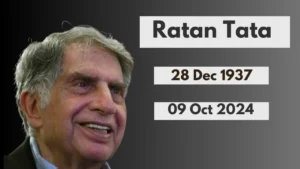3 Adani Stocks Among Top 10 Largecaps Sold by Mutual Funds in September
Introduction
In September, the Indian stock market witnessed a significant shift in mutual fund portfolios, with a focus on large-cap stocks. Among the top 10 large-cap stocks that were sold off by mutual funds, three Adani Group stocks stood out. This trend has sparked discussions among investors and market analysts about the reasons behind these divestments and what it means for the future of the Adani Group and the broader stock market. In this article, we will explore which Adani stocks were sold, why mutual funds decided to offload them, and the potential impact on the investment landscape.
1. Overview of Mutual Fund Activity in September
Mutual funds play a crucial role in shaping the stock market, as they manage large amounts of capital on behalf of retail and institutional investors. Their buying and selling decisions significantly influence stock prices and market trends. In September, mutual funds sold off several large-cap stocks, and the three Adani stocks were among the most notable.
- Total Market Value Sold: According to market reports, mutual funds sold large-cap stocks worth billions of rupees in September. Among these, a substantial portion was attributed to the Adani Group.
- Adani Group’s Influence: The Adani Group is one of India’s largest conglomerates with diversified businesses in infrastructure, energy, and logistics. Its stocks are usually popular among institutional investors, making this sell-off even more significant.
2. The Three Adani Stocks Sold by Mutual Funds
The three Adani Group stocks that were among the top 10 large-caps sold by mutual funds in September are:
a. Adani Enterprises Ltd (AEL)
Adani Enterprises is the flagship company of the Adani Group, involved in various sectors such as mining, airports, and renewable energy. It has shown remarkable growth over the years, becoming a key player in the Indian business landscape.
- Reasons for Sale: The sell-off in Adani Enterprises could be attributed to profit booking, given the stock’s high valuation and substantial rally over the past few years. Concerns about regulatory risks and market volatility may also have influenced the decision of fund managers.
- Impact on Stock Price: Following the sell-off, Adani Enterprises witnessed a dip in its stock price. Investors should closely monitor the company’s fundamentals and future growth prospects.
b. Adani Ports and Special Economic Zone Ltd (APSEZ)
Adani Ports, a major player in port development and operations, is a crucial component of the Adani Group’s portfolio. The stock has seen consistent growth over the years, but it also faced selling pressure from mutual funds in September.
- Reasons for Sale: Fund managers might have offloaded Adani Ports due to a shift in their sectoral allocation strategy. With rising competition in the ports and logistics sector, some funds may prefer to diversify their portfolios into other growing industries.
- Stock Performance Post-Sell-Off: The stock experienced some volatility, but its long-term prospects remain strong, given its strategic assets and market position.
c. Adani Green Energy Ltd (AGEL)
Adani Green Energy has been a star performer, particularly due to its focus on renewable energy. As one of the largest renewable energy companies in India, it has attracted significant investments, including from foreign investors.
- Reasons for Sale: Despite its growth potential, mutual funds might have decided to reduce their holdings in Adani Green Energy due to concerns about high valuations and the sustainability of its rapid expansion. Rising interest rates and global economic uncertainties could have also influenced these decisions.
- Future Outlook: Although the stock saw a decline post-sale, its long-term growth outlook remains promising, given India’s focus on renewable energy and the government’s push for sustainable development.
3. Why Did Mutual Funds Sell Adani Stocks?
Several factors could have influenced mutual funds’ decision to sell these Adani stocks:
a. Profit Booking
One of the primary reasons for the sell-off could be profit booking. After a substantial rally in Adani stocks over the past few years, mutual funds might have chosen to book profits, especially with valuations reaching high levels. Fund managers often rebalance their portfolios to lock in gains and adjust their strategies based on market conditions.
b. Regulatory Concerns
The Adani Group has faced its share of regulatory and compliance challenges in the past. Any negative developments or concerns regarding regulatory scrutiny can impact investor confidence. Mutual funds, as large institutional investors, may choose to reduce exposure to stocks that pose a higher risk, even if they have growth potential.
c. Valuation Concerns
Valuations of Adani stocks have been a topic of debate among market analysts. With many of the group’s stocks trading at high price-to-earnings (P/E) ratios, some mutual funds might have found them overvalued. A strategy to rotate into stocks with more reasonable valuations or into different sectors could explain the divestment.
d. Global Economic Uncertainty
Global economic conditions, such as interest rate hikes and geopolitical tensions, can influence fund managers’ decisions. With rising interest rates globally, some fund managers may have preferred to shift their focus to more stable or defensive sectors, reducing exposure to highly valued stocks like those of the Adani Group.
4. Impact on the Market and Investors
The sell-off of Adani stocks by mutual funds had a noticeable impact on the market. Here are some key implications:
a. Short-Term Volatility
The immediate impact of mutual funds selling Adani stocks was increased volatility in these shares. Retail investors who follow institutional activity closely might have reacted by selling their holdings, further intensifying price fluctuations.
b. Opportunity for Long-Term Investors
For long-term investors, the dip in Adani stocks could present an opportunity to accumulate shares at a lower price. While short-term volatility is concerning, the fundamentals of Adani’s businesses remain strong, particularly in infrastructure, renewable energy, and logistics. Investors with a long-term horizon could benefit from these growth sectors.
c. Portfolio Rebalancing for Mutual Funds
Mutual funds might continue to rebalance their portfolios, and the sell-off could be a strategic move to diversify holdings. With sectors like technology, pharmaceuticals, and financial services gaining prominence, fund managers might be reallocating capital to capitalize on new opportunities.
5. How Should Investors Respond?
If you are an investor holding Adani stocks or considering investing, it is important to understand the broader market context and the specific reasons behind these sell-offs. Here are a few steps you can take:
a. Monitor Mutual Fund Activity
Keeping an eye on mutual fund portfolios and their buying/selling trends can provide insights into market sentiment. Investors should track mutual fund reports and monitor large-cap stocks that are frequently bought or sold.
b. Assess the Fundamentals
Adani stocks, despite the sell-off, remain fundamentally strong due to their leadership in critical industries. Investors should evaluate the financial health, revenue growth, and strategic plans of Adani companies before making decisions.
c. Diversify Your Portfolio
While investing in Adani stocks might be attractive, diversification remains crucial. Balancing your portfolio with stocks from different sectors can reduce risk and enhance overall returns. Consider exposure to sectors such as technology, FMCG, and healthcare, which are expected to perform well in the current economic environment.
Conclusion
The fact that three Adani stocks were among the top 10 large-caps sold by mutual funds in September highlights the dynamic nature of the Indian stock market. While the sell-off might be concerning for some investors, it also offers insights into mutual fund strategies and potential market opportunities. By staying informed and adopting a diversified approach, investors can navigate market fluctuations and make informed decisions that align with their long-term financial goals.
Key Takeaway: While mutual funds’ sell-off of Adani stocks in September reflects short-term profit booking and risk management strategies, the long-term prospects for Adani companies remain strong. Investors should stay vigilant, track market trends, and evaluate the fundamentals of these stocks to make the best investment decisions.
This comprehensive guide should help you stay ahead of the market trends and ensure your article ranks well on Google by using the keyword “3 Adani stocks among top 10 largecaps sold by mutual funds in September” effectively throughout the content.
ABOUT JIO NEWS THEN CLICK HERE
FOR MORE INFORMATION THEN CLICK HERE












107 thoughts on “3 Adani Stocks Among Top 10 Largecaps Sold by Mutual Funds in September”
купить аккаунт магазин аккаунтов
купить аккаунт магазин аккаунтов
продажа аккаунтов соцсетей https://magazin-akkauntov-online.ru/
безопасная сделка аккаунтов гарантия при продаже аккаунтов
маркетплейс для реселлеров kupit-akkaunt-top.ru/
безопасная сделка аккаунтов маркетплейс аккаунтов соцсетей
Account Store Profitable Account Sales
Account Acquisition https://accountsmarketplacepro.com/
Account Store Sell Pre-made Account
Account Buying Platform Buy accounts
Account trading platform Sell Pre-made Account
Sell Account Purchase Ready-Made Accounts
Account Trading Platform Profitable Account Sales
Guaranteed Accounts Profitable Account Sales
Accounts for Sale Sell accounts
Find Accounts for Sale Buy Account
online account store account trading platform
account trading platform account selling service
account market account sale
sell account account buying platform
website for selling accounts accounts market
secure account purchasing platform guaranteed accounts
account buying service sell account
sell pre-made account account marketplace
account buying platform discountaccountsmarket.com
buy and sell accounts account trading platform
guaranteed accounts buy pre-made account
account sale account acquisition
verified accounts for sale accounts marketplace
account catalog account trading platform
profitable account sales account exchange
account trading service https://buy-social-accounts.org/
database of accounts for sale account purchase
online account store account purchase
secure account purchasing platform buy pre-made account
buy accounts online account store
ready-made accounts for sale find accounts for sale
buy account guaranteed accounts
website for buying accounts marketplace for ready-made accounts
website for selling accounts social media account marketplace
sell pre-made account secure account sales
account exchange service secure account sales
purchase ready-made accounts accounts for sale
accounts marketplace account market
account sale https://accounts-marketplace.xyz/
account exchange https://social-accounts-marketplaces.live
online account store https://accounts-marketplace.live
account selling service buy accounts
accounts market buy accounts
account market buy accounts
gaming account marketplace https://buy-accounts.live
sell account account market
sell account https://social-accounts-marketplace.live/
account selling service https://accounts-marketplace-best.pro/
купить аккаунт akkaunty-na-prodazhu.pro
продажа аккаунтов https://rynok-akkauntov.top/
биржа аккаунтов https://kupit-akkaunt.xyz
биржа аккаунтов магазины аккаунтов
площадка для продажи аккаунтов akkaunty-market.live
маркетплейс аккаунтов https://kupit-akkaunty-market.xyz
покупка аккаунтов akkaunty-optom.live
магазин аккаунтов https://online-akkaunty-magazin.xyz/
купить аккаунт https://akkaunty-dlya-prodazhi.pro
покупка аккаунтов kupit-akkaunt.online
buy account facebook ads buy aged facebook ads accounts
buy facebook old accounts https://buy-ad-accounts.click
buy old facebook account for ads https://buy-ad-account.top
buy fb ads account buy facebook old accounts
fb accounts for sale https://buy-ads-account.work/
buy fb account https://ad-account-for-sale.top/
Этот интересный отчет представляет собой сборник полезных фактов, касающихся актуальных тем. Мы проанализируем данные, чтобы вы могли сделать обоснованные выводы. Читайте, чтобы узнать больше о последних трендах и значимых событиях!
Получить дополнительные сведения – https://medalkoblog.ru/
buy aged facebook ads account https://buy-ad-account.click
fb account for sale https://ad-accounts-for-sale.work
buy google adwords accounts https://buy-ads-account.top/
buy google agency account https://buy-ads-accounts.click/
buy facebook old accounts buy a facebook ad account
buy verified google ads account buy google ads threshold account
buy google agency account https://ads-account-buy.work
buy google ads agency account https://buy-ads-invoice-account.top
buy google adwords account https://buy-account-ads.work/
buy old google ads account buy aged google ads accounts
google ads accounts for sale https://sell-ads-account.click
google ads reseller https://ads-agency-account-buy.click
buy facebook bm https://buy-business-manager.org/
buy google ads accounts https://buy-verified-ads-account.work
buy facebook business manager buy facebook bm
verified facebook business manager for sale https://buy-verified-business-manager-account.org
buy verified business manager facebook https://buy-verified-business-manager.org
facebook business manager account buy https://buy-business-manager-acc.org/
buy facebook business manager https://business-manager-for-sale.org
buy business manager buy-business-manager-verified.org
facebook bm for sale https://buy-bm.org/
facebook business manager buy https://verified-business-manager-for-sale.org/
facebook bm account buy buy-business-manager-accounts.org
buy tiktok ad account https://buy-tiktok-ads-account.org
buy tiktok ads https://tiktok-ads-account-buy.org
buy tiktok business account https://tiktok-ads-account-for-sale.org
buy tiktok business account https://tiktok-agency-account-for-sale.org
buy tiktok ad account https://buy-tiktok-ad-account.org
buy tiktok ad account https://buy-tiktok-ads-accounts.org
buy tiktok ads accounts https://tiktok-ads-agency-account.org
натяжные потолки в липецке цены натяжные потолки в липецке цены .
tiktok agency account for sale https://buy-tiktok-business-account.org
buy tiktok ad account https://buy-tiktok-ads.org
натяжные потолки в спальне натяжные потолки в спальне .
This is really interesting, You’re a very skilled blogger.
I’ve joined your feed and look forward to seeking more of your fantastic post.
Also, I have shared your website in my social networks!
шкафы на стоянку авто шкафы на стоянку авто .